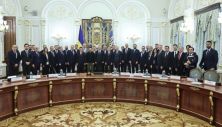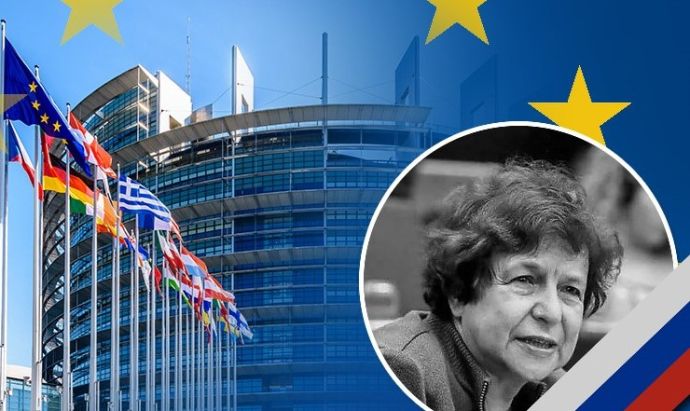At a plenary session the day before, the European Parliament adopted a resolution titled “Rushgate: Accusing Russia of interfering in democratic processes in the European Union”. It was supported by 433 deputies, with 56 against, according to the parliament’s website.
The European Parliament emphasises the danger of Russia’s expanding spy network in Europe and its disinformation campaigns, and welcomes the creation of special bodies by EU countries to counter this influence.
The resolution was prompted by accusations of collaboration with Russian special services against Latvian MP Tatjana Ždanoka.
“The case of Tatjana Ždanoka may not be an isolated one, and even more MEPs may have links with Russian intelligence, despite the aggressive war waged by Russia against Ukraine. Since 2014, several MEPs have visited the occupied territories of Ukraine and Georgia, and have been received in Syria by the bloody dictator Bashar al-Assad,” the document says.
It is noted that before the European elections in 2024, we should expect increased interference and manipulation of information by Russia.
The resolution also notes the report of the European Centre for Combating Hybrid Threats on Russia’s activities to destabilise Spain.
The deputies are concerned about the links between Catalan separatists, including representatives of the regional government of Catalonia and the former regional president and current MEP Carles Puigdemont.
The article also quotes Victor Tarradellas, a former member of Puigdemont’s party, who claims that “Russia offered to send 10,000 soldiers and pay off Catalonia’s regional debt if Catalonia recognised Ukrainian Crimea as the territory of the Russian Federation”.
The European Parliament condemns former high-ranking officials who chose to serve the Russian regime and insists on the adoption of rules that would prohibit them from holding positions in state-owned companies in Russia, China, Iran and other autocratic states.
The resolution also notes “Russia’s policy of using culture as a weapon to achieve the Kremlin’s goals and using Russian citizens working in this field as agents of influence and spies”.
The document also warns against opening EU borders to Russians trying to leave the country to avoid conscription or economic hardship due to sanctions, as “after moving to the territory of EU member states, some of them may begin to play an active role in promoting or supporting the spread of Russian narrative and propaganda, as has already happened in Georgia and Serbia”.
Read also: US Senate votes to consider Ukraine aid bill













